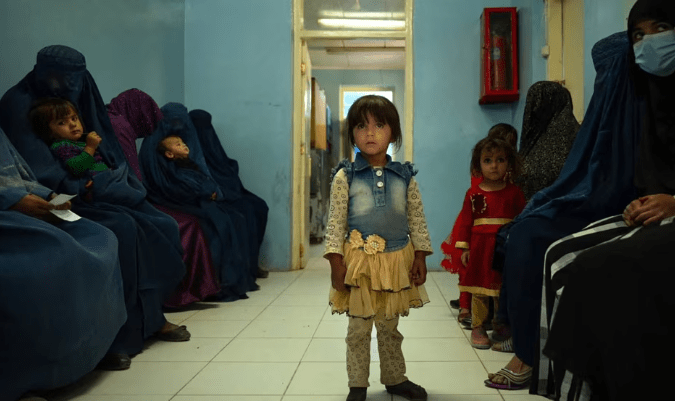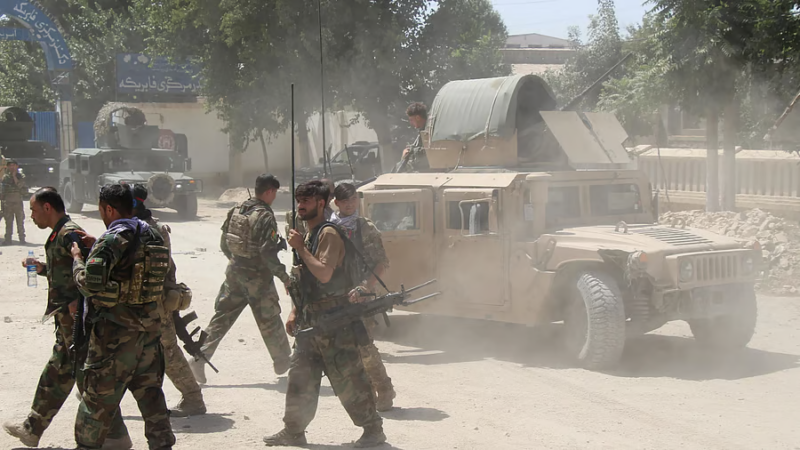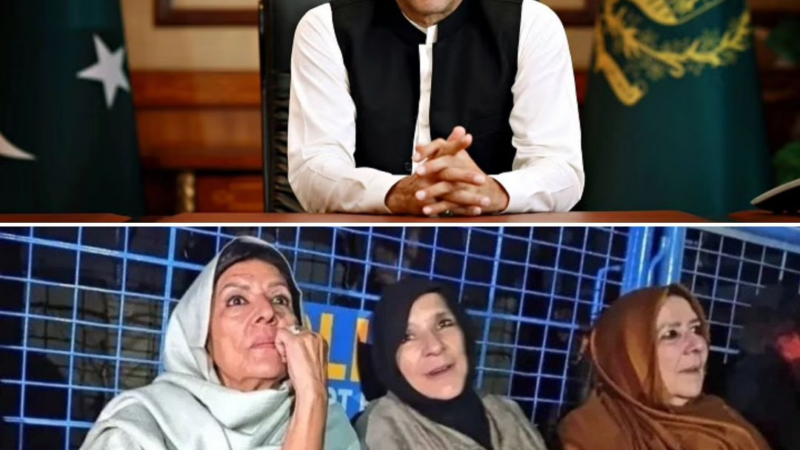Afghans are concerned that the Taliban’s prohibition on Swedish aid would make the humanitarian crisis worse.

One of the main humanitarian organizations working in the nation, the Swedish Committee for Afghanistan (SCA), provides funding to Shima so she may hold a sewing class for a number of dozen women.
The initiative has given the women, who reside in an underdeveloped rural area of the eastern province of Laghman, a stable means of subsistence.
But once the Taliban halted the SCA’s operations on July 11, the project could be abandoned. Other relief organizations that receive financing from Sweden have also been threatened by the terrorists with having their activities halted.
Following the burning of the Koran, the sacred book of Islam, in Stockholm last month, which sparked anger in the Muslim world and was denounced by the Swedish government, the Taliban made their choice.
Since the Taliban took over in 2021, which exacerbated a terrible humanitarian catastrophe and set off an economic collapse, the SCA has played a significant role in the areas of health, education, and vocational training.
Shima, 25, told RFE/RL’s Radio Azadi, “I am really upset that the Swedish Committee for Afghanistan is dissolving. “I beg the Taliban not to dismantle this group.”
Millions of Afghans have benefitted from the help provided by the Swedish humanitarian organization, which has been present in Afghanistan for the majority of the last 40 years of conflict.
Farida Hafeez, who has worked for the SCA for the last five years, told Radio Azadi that the Taliban’s plan to shut down this organization is really terrible news for the Afghan economy. Afghanistan’s unemployment rate will climb quickly.
Around 8,000 Afghans are employed by the SCA in 18 of Afghanistan’s 34 regions. The organization manages healthcare facilities in the eastern province of Nuristan and the central province of Wardak with an annual budget of about $50 million. According to the organization, its clinics saw more than 2.5 million patients in the two provinces last year.
Additionally, the SCA serves more than 20,000 disabled individuals in these same regions in addition to educating over 130,000 students in its rural schools.
According to Hafeez, the Taliban’s decision to halt the SCA’s operations would only make the humanitarian catastrophe in Afghanistan worse.
More than two-thirds of Afghanistan’s 40 million people, or around 28 million people, the UN estimates, need humanitarian aid. Six million Afghans are at danger of being hungry.
Overseeing Sweden’s development assistance to developing nations, the Swedish International Development Cooperation Agency (SIDA), has long been a significant giver of humanitarian and development aid to Afghanistan. It provided Afghanistan with more than $90 million in financing last year.
The Taliban has issued a warning that it may attack SIDA-funded charity organizations.
On July 11, the Taliban issued an ultimatum to halt “Sweden’s activities in Afghanistan until they apologize to Muslims for this heinous act,” in reference to the Stockholm Koran burning.
In a statement that was released the same day, the SCA said that it was looking for a “dialogue” with the Taliban to explain the group’s directive.
The SCA claimed to be a “people to people” organization that, since it first began functioning in Afghanistan in 1980, had shown “deep respect” for Islam and Afghan customs.
During the Taliban’s almost 20-year struggle against the Western-backed Afghan government and foreign troops, the SCA operated in Taliban-controlled regions of Afghanistan.
The statement said, “SCA strongly condemns all acts of desecration of the Holy Quran.” “Just as we reject any effort to sow discord or hostility among people based on differences in race, religion, or nationality.”
According to the organization, it is not a part of the Swedish government and is supported by a “wide range of donors.” It also claims to be “independent and impartial in relation to all political stakeholders and states.”
For months, the Taliban and Western relief organizations have been at odds. The group outlawed Afghan women from working for domestic and international NGOs in December, which forced several large groups to cease or scale down their activities in areas like emergency food distribution, healthcare, and education. The United Nations was added to the ban in April.
Later that month, after accusing the Taliban of trying to divert or influence assistance delivery, foreign donors and relief organizations ceased their activities in three districts of Afghanistan.
Due to decreased financing from foreign donors, the UN lowered its annual assistance budget for Afghanistan in June from $4.6 billion to $3.2 billion this year. The international organization said that the Taliban’s restriction on female aid workers had caused a “changing operating context” that had led to the new strategy.






